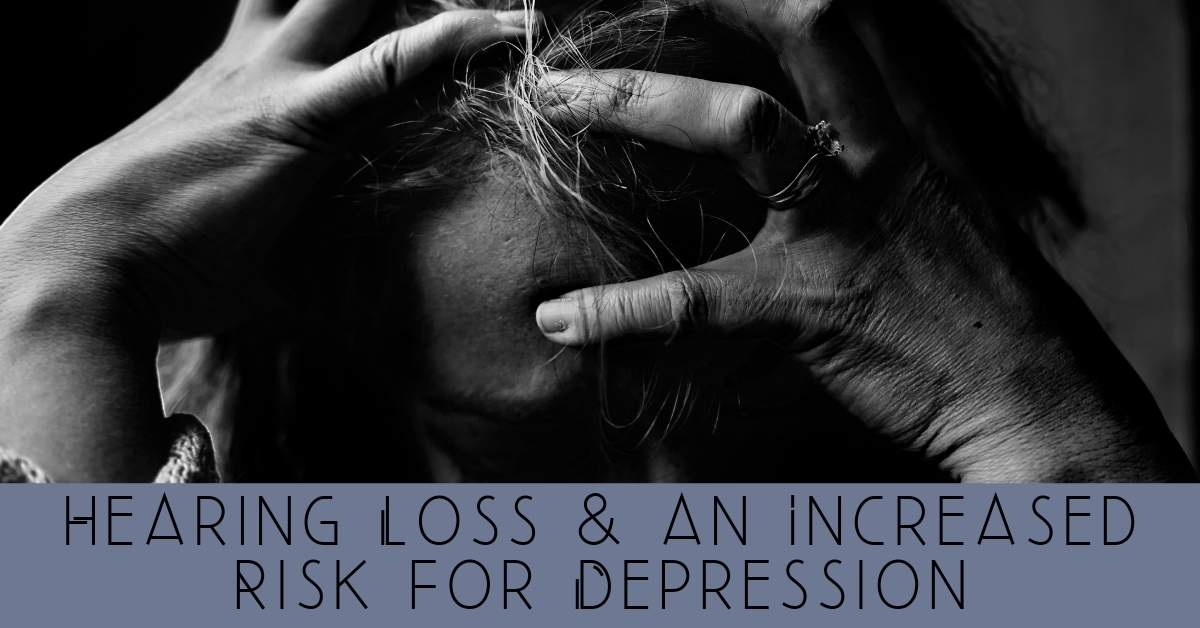
If you’re struggling to hear, you might not think it’s a very big deal. You’ve decided you can use your good ear to compensate for the sounds you can’t hear, or that you can still communicate well enough to get by. However, your hearing loss will continue to get worse over time, and your ears aren’t the only thing that’s affected when you have hearing loss. In fact, straining to hear greatly increases your risk of depression.
Studying Hearing Loss and Depression
For seniors with untreated hearing loss, the chances of developing depression are very high. A third of people between the ages of 60 to 69 have hearing loss, and that number rises to half of all seniors over the age of 70. Researchers looked for connections between hearing loss and depression and found that those with hearing loss were 47% more likely to struggle with depression than their hearing peers. “We know that older adults with hearing loss often withdraw from social occasions, like family events, because they have trouble understanding others in noisy situations, which can lead to emotional and social loneliness,” explained Blake Lawrence of the Ear Science Institute Australia, in Subiaco. “We also know that older adults with hearing loss are more likely to experience mild cognitive decline and difficulty completing daily activities, which can have an additional negative impact on their quality of life and increase the risk of developing depression.”
Hearing Loss and Physical Activity
Those with hearing loss struggle to stay active, according to researchers. Hearing loss can affect balance, and making getting around the city far more dangerous. If you can’t hear clearly, you might be nervous to venture too far from home, since you can’t hear your phone ringing, the car honking behind you, or the barking of an angry dog.
Hearing Loss and the Brain
Hearing loss also affects the brain in profound ways, and this can lead to depression. “When we experience hearing loss, it also means that we’re sending a weaker auditory signal to our brains for processing,” explains Nicholas Reed of the Cochlear Center for Hearing and Public Health at Johns Hopkins University School of Medicine in Baltimore. “This weak signal may mean our brains have to go into overdrive to understand sound (i.e. speech) which may come at the expense of another neural process (i.e., working memory). Also, the weak signal may cause certain neural areas and pathways to reorganize, which could change how our brain, including aspects that regulate depression, function.”
Hearing Loss is not a Normal Part of Aging
For many people, hearing loss is seen as a normal part of aging, and if you’re a senior struggling to hear, you might not realize the importance of seeking treatment. While it’s true that many seniors have hearing loss, straining to hear is not normal, and is detrimental to your health and wellbeing. Living with untreated hearing loss affects your ability to communicate, and you’ll struggle to maintain your close relationships. If you’re unable to hear your loved one, and every conversation turns into a yelling match, you may find it’s easier to say nothing at all. Hearing loss can also lead to tinnitus, that annoying ringing or buzzing in your ears that can impact communication, and make it more difficult to hear and understand what’s been said.
Those with hearing loss often withdraw from social situations, and stop going out with friends. It can be exhausting to spend an evening straining to hear, and no one wants the embarrassment of mishearing a question and answering inappropriately. Your friends are very patient with you, but when you have to ask them to repeat the same sentence 3 times, communication breaks down. If you have untreated hearing loss, you’ll likely experience social isolation, and find yourself struggling with depression.
Pacific Northwest Audiology
If you’re living with hearing loss, you’ll have trouble socializing, and feel increasing fatigue. This will effect both your physical and mental health, so if you have noticed any changes in your hearing, visit us today at Pacific Northwest Audiology where our team of hearing health specialists will help you find the perfect devices to help you hear when you need it the most.
